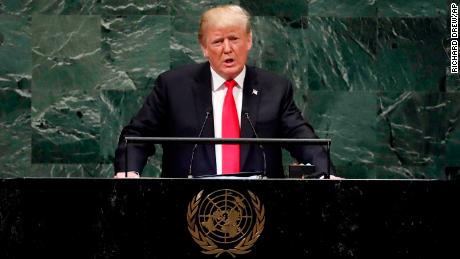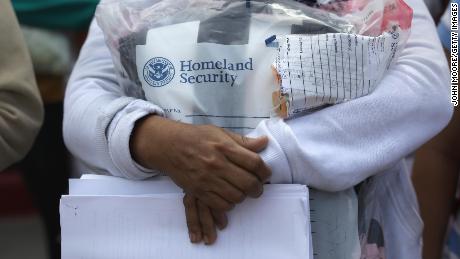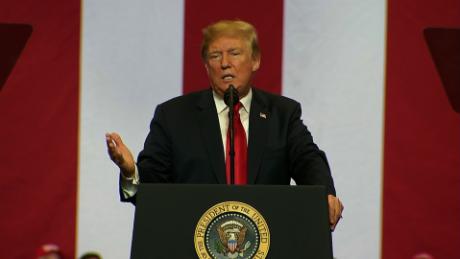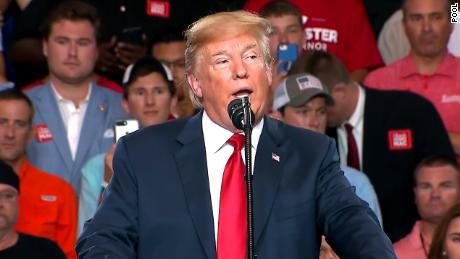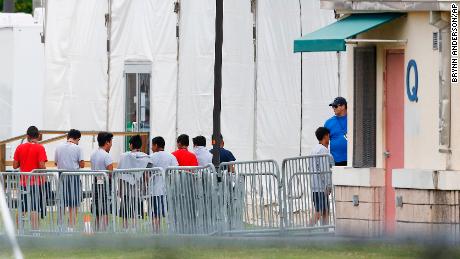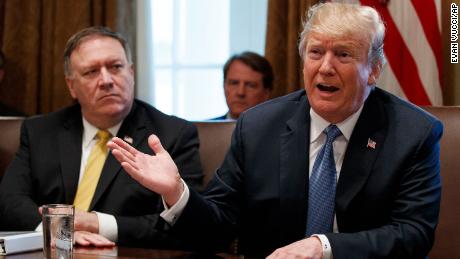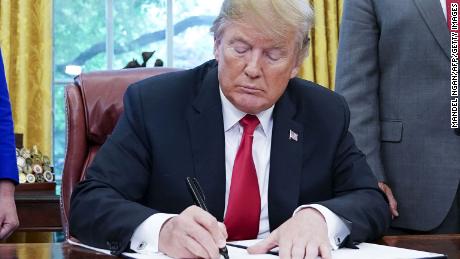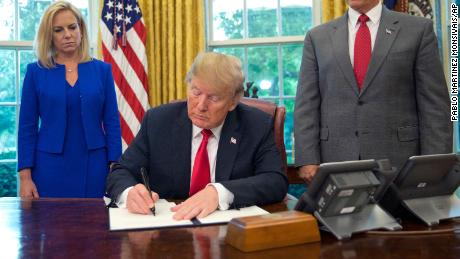Story highlights
- The bill could take on added urgency amid the DACA debate
- The legislation would invest $15 billion over four years on border infrastructure
Washington (CNN)A key House committee is set to consider a major border security bill, the committee's chairman and bill author announced Wednesday, a development that comes as Congress debates what to do about the end of the Deferred Action for Childhood Arrivals program.
The House homeland security committee will mark up the bill next week, Chairman Mike McCaul announced Wednesday.
The Texas Republican's bill, first introduced in July, would invest $15 billion over four years in border infrastructure -- including physical barriers -- technology and personnel. A similar bill has been introduced in the Senate by fellow Texas Republican Sen. John Cornyn.
"Now that we have a partner in the White House who has made this a top priority, it's time to send a bill to President (Donald) Trump's desk so we can deliver the American people the security they have long demanded and deserve," McCaul said.
But while McCaul and Cornyn have worked on border security for years, and this proposal for months, the timing of the markup of the House homeland security committee could take on additional urgency with the debate raging in Congress over how to protect young undocumented immigrants brought to the US as children who were given the ability to work and study in the US under DACA.
When Trump announced the Obama-era program's end at the beginning of the month, he allowed renewals of the two-year permits to continue until March, when individuals protected will begin losing their DACA status.
That has sparked a flurry of activity in Congress to try to codify the executive branch program into law. Democrats and most Republicans are in agreement on wanting to find a solution for the young people who have in many cases known no other home than the US, but deep divisions remain over what that should look like.
Republicans, including Trump, are demanding that any DACA deal include border security and possibly interior enforcement.
House Speaker Paul Ryan has put together an immigration working group of Republicans that includes McCaul to come up with options the House GOP could get behind. A source familiar with the process downplayed the timing, saying the bill might have been marked up months ago but was slowed down by working through input from the administration.
McCaul's Border Security for America Act would require "physical barriers" and technology to be deployed on the Southern border, would increase air and marine patrols, would add 5,000 border agents and 5,000 customs officers, would waive polygraph requirements for a narrow set of Customs and Border Protection applicants and would mandate an entry-exit system for entering and leaving the United States that collects biometric information. Of the total investment, $10 billion would be for new border security and $5 billion would be for modernizing ports of entry.
Other provisions in the bill include authorizations for the National Guard and Defense Department to loan troops and supplies to the border security effort with reimbursement from the federal government -- though they would not be authorized to do immigration enforcement tasks.
The measure may be controversial, though there is precedent. In 2010, President Barack Obama deployed 1,200 National Guard troops to the Southern border to fight drug crime and provide intelligence, and in 2014, then-Texas Gov. Rick Perry sent troops to his state's border with Mexico amid a surge of undocumented immigrants.
The bill would allow for the National Guard and military to engage in activities like building, intelligence gathering and surveillance.
Another potentially controversial measure would waive a number of federal laws to give Customs and Border Protection nearly absolute access to the border to conduct its patrols and for security needs, prohibiting federal agencies including environmental agencies from restricting that.
The legislation would also require the department to conduct a security assessment of the southern border and submit strategic plans for securing it going forward.


